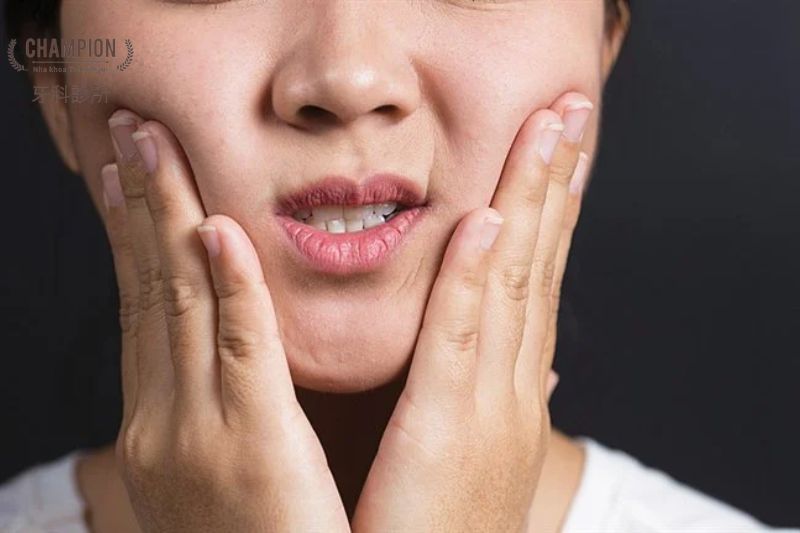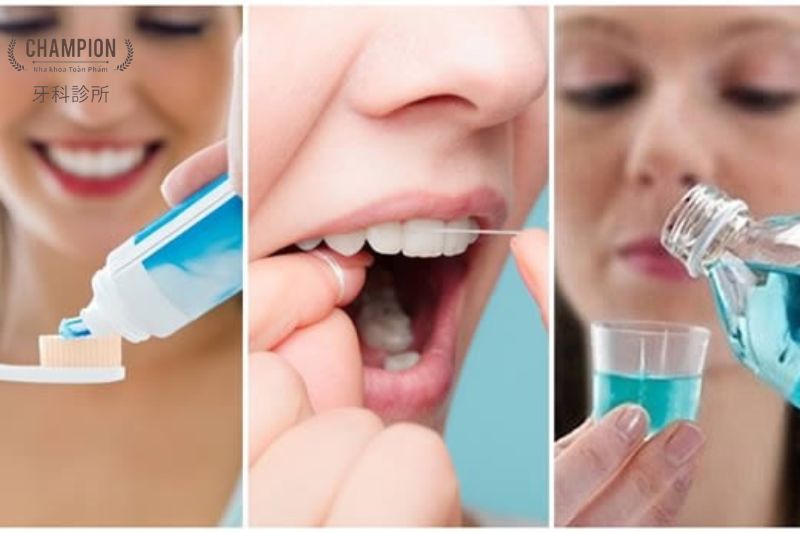The salivary glands secrete saliva that helps clean and protect the teeth and mouth from harmful agents. However, if not properly cared for, the salivary glands can calcify, making the teeth prone to cavities and gum inflammation. This article will provide you with useful knowledge on how to care for the salivary glands to effectively prevent calcification.
The Importance of Salivary Glands in Oral Health
The salivary glands play an extremely important role in maintaining oral health. The saliva secreted by the glands has the following functions:
Cleaning and Protecting the Teeth and Mouth
Saliva helps clean the oral cavity by flushing out food residue and harmful bacteria. In addition, saliva contains natural antimicrobial substances like lysozyme and lactoferrin, which help protect tooth enamel. Therefore, well-functioning salivary glands can prevent many oral diseases.
Neutralizing Acid, Preventing Cavities and Bad Breath
Saliva has an alkaline nature, which helps neutralize the acid in the mouth produced by bacteria, reducing the risk of cavities and bad breath. Moreover, saliva dissolves and removes plaque buildup on the tooth surface, preventing the formation of tartar.
Reducing the Risk of Dental Diseases
When the salivary glands function normally, they secrete enough saliva necessary to clean and protect the teeth and mouth. Therefore, it will limit many dangerous diseases such as cavities, gum inflammation, salivary gland inflammation, bad breath... which can severely affect oral health.

Causes of Salivary Gland Calcification
The condition of salivary gland calcification is the phenomenon in which mineral salts, mainly calcium and phosphorus, accumulate in the salivary glands and ducts. This forms hard crystals or calcified particles that cause obstruction and inflammation of the glands.
There are several main causes that lead to salivary gland calcification:
Prolonged Stress
When the body is exposed to stress for a long time, the brain releases a lot of cortisol - a hormone that disrupts salivary gland function. High levels of cortisol inhibit the production and secretion of saliva. As a result, there is not enough saliva to dissolve the mineral salts, leading to crystallization and sedimentation.
Aging and Gland Function Decline
As age increases, the salivary glands gradually shrink and their saliva secretion function declines. This causes a significant reduction in saliva, not enough to dilute the minerals in saliva. Therefore, sedimentation and calcification are very likely to occur.
Hormonal Imbalance
Imbalance of certain hormones in the body such as estrogen, testosterone, melatonin... directly affects the function of the salivary gland system. This leads to decreased saliva secretion, resulting in calcification.

Daily Salivary Gland Care
To prevent calcification and protect the health of the salivary gland system, regular care measures are needed, such as:
Adequate Water Intake
Drinking 2-3 liters of water per day will help the body maintain moisture, avoiding dry mouth and dry salivary glands. Especially during the dry season and hot weather, it is important to drink more water.
Frequent Mouth Rinsing
Rinsing the mouth at least twice a day with diluted salt water helps clean the oral cavity, remove harmful bacteria, and stimulate the salivary glands.
Salivary Gland Steaming and Massage
Steaming warm water on the face and neck area or gently massaging helps stimulate blood circulation to the salivary glands, improving obstruction and gland shrinkage.
Reducing Stress and Tension
Reducing stress and tension through yoga, meditation, steaming... helps stabilize the mind and avoid salivary gland dysfunction caused by stress.

>> See more: Salivary gland calcification: A dangerous disease or normal?
Methods for Treating and Preventing Salivary Gland Calcification
Salivary gland calcification is a quite common clinical condition that causes pain and affects oral health. To thoroughly treat and prevent the recurrence of gland calcification, it is necessary to apply the following methods:
Perform Gland Cleaning Procedures
During examinations at dental clinics, specialized doctors will perform in-depth procedures to thoroughly clean the salivary ducts. They will remove pus particles, calcified crystals attached in the salivary glands and ducts, ensuring that there are no remaining deposits that could cause calcification in the future.
Use Prescribed Medications
After cleaning the glands, the doctor will prescribe certain types of antibiotics, anti-inflammatory drugs, and expectorants to control symptoms, prevent infection and recurrence of gland calcification. Strictly following the doctor's instructions and prescriptions is very important to ensure effective treatment.
Adopt a Reasonable Diet and Lifestyle
In addition to medication, patients need to change their diet and lifestyle to support the treatment process and prevent recurrence. It is necessary to eliminate stimulants like alcohol, tobacco, coffee, and supplement with more green vegetables and fruits to increase resistance. Maintaining good oral hygiene and avoiding the spread of bacteria is also a very important measure.
Regular Check-ups Every 6 Months
After thorough treatment, patients should regularly return for check-ups every 6 months. This helps doctors detect the risk of recurrence early and take timely preventive measures. Additionally, periodic check-ups help detect other oral health problems early, helping to protect overall health.

The Importance of Regular Dental Check-ups
Regular dental check-ups every 6 months are extremely important, with many benefits that cannot be overlooked:
Early Detection of Diseases
Regular check-ups help dentists detect early signs of abnormalities in the salivary glands, gums, and jawbones. This allows doctors to intervene promptly before the disease becomes more severe and difficult to treat. Early detection also helps minimize complications and limit harm to health as much as possible.
Appropriate Consultation and Treatment
At reputable dental facilities, a team of specialized doctors will thoroughly evaluate the patient's oral health condition. Based on this, they will prescribe appropriate treatments for each specific condition. This helps address the problem thoroughly, quickly, and effectively, ensuring the best possible treatment outcomes.
Reputable Dentistry Ensures Quality
Receiving treatment at reputable dental clinics ensures service quality, avoiding the risk of inexperienced, unprofessional dentists who do not follow specialized procedures. Some reliable choices like Champion Dentistry are trustworthy addresses with experienced doctors, trained extensively and operating in a professional environment. This ensures that medical examinations and treatments are always effective and safe for patients.
Conclusion
The salivary glands play an extremely important role in maintaining oral health. Therefore, caring for and protecting them from diseases such as salivary gland calcification is necessary. By correctly implementing treatment and prevention methods, combined with reasonable oral care habits, we can control calcification and ensure long-term oral health.
If you are experiencing issues related to oral health, please contact Champion Dentistry via their hotline for the best advice and support. With an experienced team of doctors and modern equipment, Champion Dentistry is committed to providing professional, effective, and safe oral care services.
Vietnamese & English: (028) 5411-2295
中文: (028) 5411-2297 172 Nguyen Luong Bang, Tan Phu Ward, District 7, Ho Chi Minh City.
Fanpage: Champion Dental Clinic 牙科診所
Zalo: Champion Dental Clinic
Youtube: Champion Dental Clinic 牙科診所
 Champion Dental Clinic
Champion Dental Clinic



